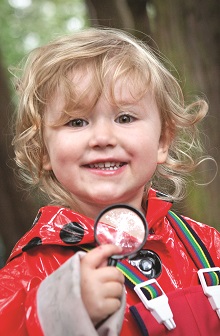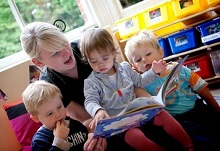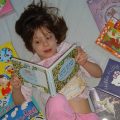The Terrible Two’s
 Two year olds like to be independent. They’ve reached the stage where they can walk and talk, and phrases like ‘No!’, ‘That’s mine!’ and ‘I want’ have started to enter their vocabulary. If you catch yourself in the middle of a conversation about your two year old with an older relative, you may hear them nod wisely and say, ‘Oh yes, it’s the terrible two’s, I remember when you were that age’. This is obviously less than helpful, not to mention a little unfair on children. It’s usually around this time, when kids start teething, which can be a painful experience. You may be trying to potty train your youngster and weaning them off their nappies, hence a few embarrassing and frustrating bedwetting situations. Getting independence is not an easy task. Life is quite demanding at the age of two. What you have to remember is that every child is different and will learn and grow at his or her own pace.
Two year olds like to be independent. They’ve reached the stage where they can walk and talk, and phrases like ‘No!’, ‘That’s mine!’ and ‘I want’ have started to enter their vocabulary. If you catch yourself in the middle of a conversation about your two year old with an older relative, you may hear them nod wisely and say, ‘Oh yes, it’s the terrible two’s, I remember when you were that age’. This is obviously less than helpful, not to mention a little unfair on children. It’s usually around this time, when kids start teething, which can be a painful experience. You may be trying to potty train your youngster and weaning them off their nappies, hence a few embarrassing and frustrating bedwetting situations. Getting independence is not an easy task. Life is quite demanding at the age of two. What you have to remember is that every child is different and will learn and grow at his or her own pace.
With that in mind, here are some tips for supporting your two year old, both at home and in nursery.
Let off steam
There’s nothing kids love more than to run about outside. At the age of two years, they’ll have heaps of energy which needs to be expended each day otherwise they’ll find it really hard to go to sleep when they’re told that it’s bedtime, which may cause a few tantrums and tears.
 Story time
Story time
Reading aloud to your baby from a young age can help to instil confidence in their learning ability and teach them how to formulate the correct sounds, as well as how to associate images with words. Even reading a simple story book with pictures can be a useful teaching tool for your little one. Point to a picture of an animal and ask them if they can tell you what animal it is, or what sound it makes. What’s more, reading before bed encourages routine in your child’s life and will help to send even the most tearful children off to sleep soundly, in the knowledge that you’re still there.
Sing a song of sixpence
Singing silly and fun nursery rhymes with your children is a great way to help them learn. Encourage them to sing along too and have extra fun by making up action movements for your two year old to copy. Adding movements to a song will help a child to relate the action to the song description, as well as improve their co-ordination and balance. You never know, you may be looking at the next famous dancer or singer.
Let them be creative
Whilst it’s important for kids to get plenty of exercise by running around each day, you should never underestimate the value of creativity. Give your child a stack of paper and creative tools such as paint, crayons, chalk and finger paints. You can tell them what you would like them to draw or allow their imagination to run wild. Afterwards ask them to describe their painting to you. Remember to praise their work and make your child proud and boost their confidence by displaying their efforts on the fridge. If people come round to your house, point out your child’s work whilst they’re in ear shot so that others can bond with your youngster too.
Let’s get messy
Two year olds love playing but they also love getting messy, so combine the two and sit down with your child for a session of messy play. This can involve playing in a sandpit, making objects from clay or simply having a water fight (let them win). It’s important for you to spend lots of quality bonding time with your child and doing fun things as well as the educational stuff will make you someone they’ll want to look up to and emulate.
There are plenty of fun and educational activities to get your child involved in. And here are a few tips to prepare you on what to expect from your two year old.
– Two year olds have short attention spans so mix things up with plenty of different activities to keep them moving and focused.
– Kids love to know that they’re being helpful so let them help you with simple chores around the house and praise good work.
– Give them simple choices, such as ‘would you like milk or juice to drink?’ to avoid causing them more stress.
– Be prepared for temper tantrums. Learning is hard work and takes time and practise which can be upsetting and frustrating for two year olds.
– Young children need time to adjust to changes so warn them in advance before you stop playing. Saying things like ‘we’ll go inside for lunch soon’ will prepare them that play time is about to come to an end and something else exciting will happen.






